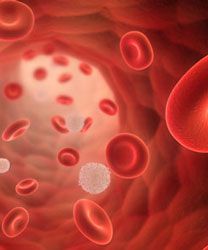Mogamulizumab Receives FDA's Priority Review for CTCL
A biologics license application for mogamulizumab has been granted a priority review by the FDA for the treatment of patients with cutaneous T-cell lymphoma who have received at least 1 prior systemic therapy, Kyowa Hakko Kirin, the manufacturer of the anti-CCR4 monoclonal antibody, has announced.
mcl

A biologics license application (BLA) for mogamulizumab has been granted a priority review by the FDA for the treatment of patients with cutaneous T-cell lymphoma (CTCL) who have received at least 1 prior systemic therapy, Kyowa Hakko Kirin, the manufacturer of the anti-CCR4 monoclonal antibody, has announced.
The application is based on findings from the phase III MAVORIC study. Results of the study are scheduled to be presented in December at the 2017 ASH Annual Meeting. According to the study abstract published online ahead of the meeting, mogamulizumab reduced the risk of progression or death by 47% compared with vorinostat (Zolinza) in previously treated patients with CTCL.
Under the Prescription Drug User Fee Act, the FDA is scheduled to make its final decision on the BLA on or before June 4, 2018.
“I am delighted that the FDA accepted the BLA for mogamulizumab with priority review and this is another significant achievement for our subsidiary, Kyowa Kirin Pharmaceutical Development,” said Mitsuo Satoh, PhD, executive officer, Vice President Head of R&D Division of Kyowa Hakko Kirin. “We will keep working with regulatory authorities such as FDA to make it available to patients with CTCL in the United States as soon as possible.”
The MAVORIC study included 372 patients with histologically confirmed mycosis fungoides (MF) or Sézary syndrome (SS; two subtypes of CTCL) who had failed ≥1 systemic therapy. Patients were evenly randomized to 1.0 mg/kg of mogamulizumab weekly for the first 4-week cycle and then every 2 weeks, or vorinostat at 400 mg daily. Crossover to mogamulizumab was allowed for patients receiving vorinostat who progressed or had intolerable toxicity. Progression-free survival (PFS) was the primary endpoint.
Patient characteristics were similar between the 2 arms. These included age (median, 63.5 vs 65 years in the mogamulizumab vs vorinostat arms, respectively), ECOG performance status of 0 or 1 (99% vs 100%), and stage III/IV disease (63.4% vs 61.3%). In both arms, the median number of prior systemic therapies was 3.
The investigator-assessed median PFS was 7.7 months (95% CI, 5.7-10.3) in the mogamulizumab arm compared with 3.1 months (95% CI, 2.9-4.1) in the vorinostat arm (hazard ratio [HR], 0.53; 95% CI, 0.41-0.69,P<.0001). By independent review, the median PFS was 6.7 versus 3.8 months, respectively (HR, 0.64; 95% CI, 0.49-0.84;P= .0007). The PFS benefit with mogamulizumab was observed across predefined subgroups, including disease type and disease stage.
The overall response rate (ORR) was 28% with mogamulizumab versus 4.8% with vorinostat (P<.0001). Among patients with MF and SS, the ORR was 21.0% vs 7.1% (P= .0042) and 37.0% vs 2.3% (P<.0001), respectively. Mogamulizumab also improved ORR in patients with stage III/IV disease, at 33.9% vs 2.6%. Among patients assigned to vorinostat who crossed over to mogamulizumab, the ORR was 30.1%
Grade 1/2 treatment-emergent adverse events (TEAEs) were experienced by 54.9% of patients receiving mogamulizumab, with 42.4% of patients experiencing grade 3 to 5 TEAEs.
TEAEs occurring in more than 20% of patients that were more common with mogamulizumab versus vorinostat included infusion-related reactions (33.2% vs 0.5%) and skin eruptions due to drug (23.9% vs 0.5%).
TEAEs more common with vorinostat versus mogamulizumab included diarrhea (61.8% vs 23.4%), nausea (42.5% vs 15.2%), thrombocytopenia (30.6% vs 11.4%), dysgeusia (29.0% vs 3.3%), and increased blood creatinine (28.0% vs 3.3%).
Reference:
Kim YH, MD, Bagot M, Pinter-Brown L et al. Anti-CCR4 monoclonal antibody, mogamulizumab, demonstrates significant improvement in PFS compared to vorinostat in patients with previously treated cutaneous T-Cell lymphoma (CTCL): results from the phase III MAVORIC study. Abstract available ahead of 2017 ASH Annual Meeting; December 9-12, 2017; Atlanta, GA. Abstract 817.
Examining the Non-Hodgkin Lymphoma Treatment Paradigm
July 15th 2022In season 3, episode 6 of Targeted Talks, Yazan Samhouri, MD, discusses the exciting new agents for the treatment of non-Hodgkin lymphoma, the clinical trials that support their use, and hopes for the future of treatment.
Listen
Lower Cardiac Risks Found With Second-Generation BTK Inhibitors in B-Cell Hematologic Disorders
December 12th 2024In a meta-analysis, second-generation BTK inhibitors were linked to a significantly low incidence of atrial fibrillation, overall cardiac adverse events, and heart failure in patients with B-cell hematologic malignancies.
Read More